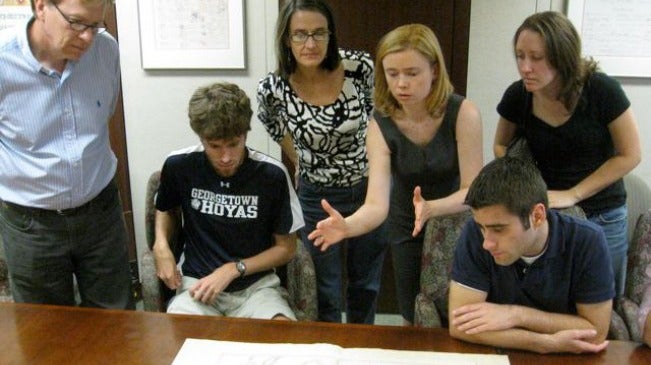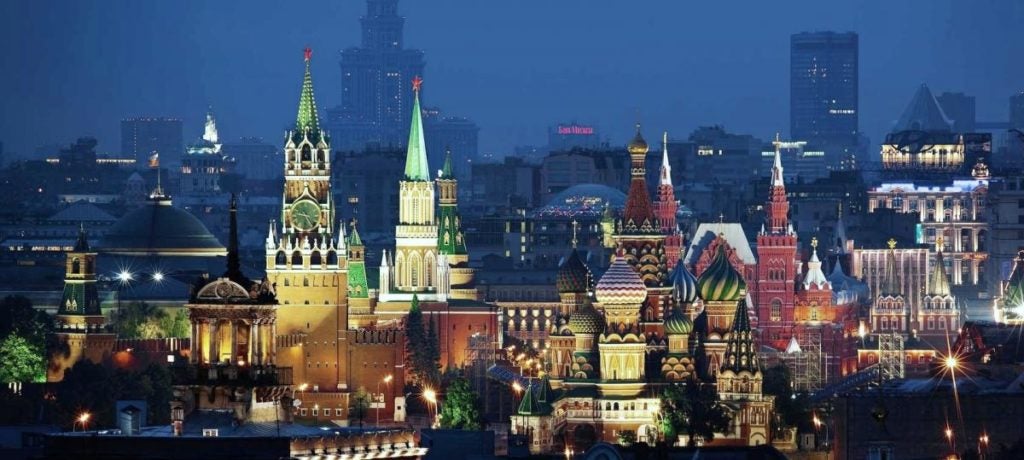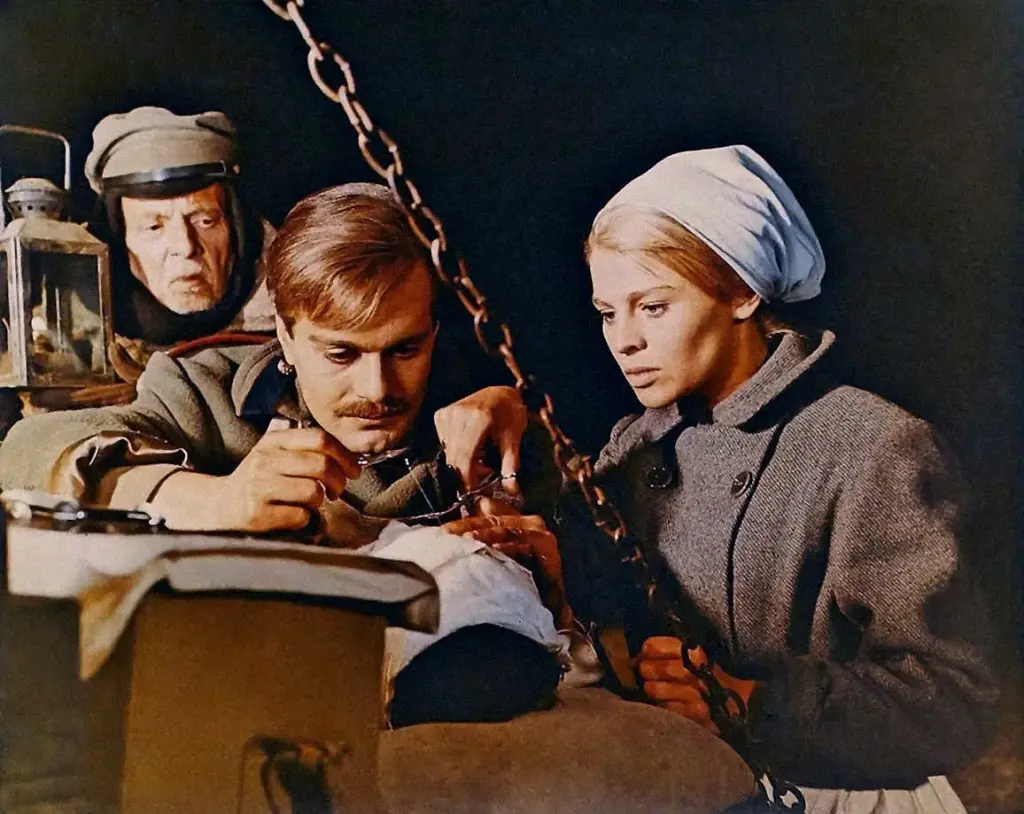The Department of Slavic Languages offers several programs of study, including a Russian major for students in the College of Arts and Sciences and several other programs for students across Georgetown. We also offer master’s-level coursework that supports several programs in the College and SFS.

Our department is designed around the Major in Russian, which focuses on rigorous language and cultural instruction. We also offer a Major in Russian with Business Coursework, which combines Russian language with courses from the McDonough School of Business, a Russian Minor, with a focus on language, and a Minor in Russian Literature and Culture, which does not require the Russian language.
Our courses also contribute to the Russian and East European Studies Certificate program, the accelerated 5-year master’s degree program BSFS/BA to MAERES.
All of our students are encouraged to study abroad. For approved summer programs the Department awards three credits toward the Russian major and the remaining three credits as elective coursework. Semester and academic-year program credit will be determined by the Department.

Liubov Popova, Non-Objective Composition (c. 1920)
Russian Major
The program of studies leading to a Russian major educates students to recognize the complexity inherent in all cultures, including their own. A rigorous curriculum focusing on Russia, Russian, and Russians empowers students to see from the Other’s point of view.
The Department of Slavic Languages recognizes four inter-related curricular foci and has identified discrete goals within each of them: communication; culture; academic and professional applications; and de-Othering the Other. Upon completion of the Russian major, students will be able to:
Communication
- Understand extended speech and follow complex lines of argument.
- Read technical, scholarly, and literary prose; appreciate and understand an author’s attitudes or viewpoints; recognize markers of genre and style.
- Interact spontaneously with native speakers on a wide range of subjects and express and sustain a personal viewpoint.
- Write detailed texts relaying information and supporting a particular point of view.
- Access and use the new media in Russian.
Culture
- Understand the place of Russian within the context of world languages.
- Identify major religious, artistic, and social currents that inform Russia’s past and present.
- Recognize major periods and currents in Russia’s cultural and literary development.
- Demonstrate familiarity with the norms of contemporary Russian life (e.g., family interactions; popular entertainment; media, including the internet; etc.).
Academic and Professional Applications
- Apply Russian as a research tool to a particular academic discipline (e.g., literature, linguistics, history, political science, theology, etc.).
- Use Russian in the professional arena (e.g., in working for the U.S. government, an NGO, a private company or firm conducting business with Russia, etc.).
De-othering the Other
- Participate appropriately and meaningfully in a broad range of social interactions with Russians, whether inside or outside of Russia (e.g., cultural and sports events, educational dialogue, religious services, etc.)
- Share their own perspectives on Russia in a manner that is well-informed and respectful.
Required Courses
12 Russian courses (unless lower placement requires additional language study):
- RUSS 1012: First-Level Russian II (6 credits)
- RUSS 1511: Second-Level Russian I (6 credits)
- RUSS 1512: Second-Level Russian II (6 credits)
- RUSS 3001: Third-Level Russian I (3 credits)
- RUSS 3002: Russia(n) in Context I (3 credits)
- RUSS 3003: Russia(n) in Context II (3 credits)
- RUSS 1115: Russia A-Z I (1 credit, offered every fall)
- RUSS 1116: Russia A-Z II (1 credit, offered every spring)
- 4 Russian electives (3 credits each): 2 taught in English and 2 in Russian
Students who begin at a higher level must take 12 courses (a sequence of 10 six-credit or three-credit courses, plus Russia A-Z I & II) in consultation with their advisor and/or the Department Chair.
Students should select their four Russian electives in consultation with their adviser from 4000 level courses in Russian language, literature, culture, and linguistics, and from coursework completed in approved study abroad programs.
Transfer students with previous college coursework in Russian will be awarded Russian credit based on performance on the departmental placement examination upon entrance.
Major in Russian with Business Coursework
The International Business, Language, and Culture (IBLC) Bachelor of Science program is a joint degree developed and offered by Georgetown College and the McDonough School of Business (MSB). Students in the College and MSB may apply to enter the IBLC program at the end of their first year.

The IBLC joint degree program offers students an integrative education in language and business, emphasizing the centrality of cultural and linguistic competency to the business sector, and the ways that language study effects change and innovation in the world. In addition to developing critical tools and professional perspectives essential to business, students will take up vital humanistic and cultural questions through the study of literary, historical, and linguistic traditions, illuminating social and ethical dimensions that intersect with the business world.
The Business component provides five different concentrations: Accounting, Finance, Management, Marketing, or International Business. For complete information, please see the International Business, Language, and Culture section of the Undergraduate Bulletin.
Students enrolled in this program may take no more than 25% of their total coursework from the designated offerings in the McDonough School of Business.

A. Vinogradov. V. Dubossarsky, War and Peace (from the series Russian Literature, 1996)
Russian Minor
Upon completion of the Russian minor, students should be able to:
Communication
- Understand the main points of clear standard speech on familiar matters.
- Read articles, reports, and short stories.
- Converse on family, hobbies, work, travel, and current events.
- Write simple connected texts on topics that are familiar or of personal interest.
- Access and use the new media in Russian.
Culture
- Demonstrate basic familiarity with the norms of contemporary Russian life (i.e., family interactions; popular entertainment; media, including the internet; etc.).
Academic and Professional Applications
- Apply Russian as a research tool to a particular academic discipline (i.e., literature, linguistics, history, political science, theology, etc.).
- Use Russian in the professional arena (i.e., in working for the U.S. government, an NGO, a private company or firm conducting business with Russia, etc.).
De-othering the Other
- Participate appropriately and meaningfully in a broad range of social interactions with Russians, whether inside or outside of Russia (i.e., cultural and sports events, educational dialogue, religious services, etc.)
- Share their own perspectives on Russia in a manner that is well-informed and respectful.
Minor in Russian Literature and Culture (in English)

Still from the 1965 Hollywood film Doctor Zhivago starring Omar Sharif and Julie Christie
The minor in Russian Literature and Culture consists of six courses in Russian literature and culture, all taught in English. No knowledge of the Russian language is required. At least two courses must be taken in either the English or Slavic Languages Departments and at least two in the History or Art and Art History Departments. The remaining two may be from any of the four departments in accordance with the student’s interests. A list of qualifying courses is available from the chair of the Department of Slavic Languages.
Upon completion of the Russian minor, students should be able to:
Culture:
- Identify some of the religious, artistic, and social currents that inform Russia’s past and present.
- Recognize major periods and currents in Russia’s cultural and literary development.
Academic and Professional Applications:
Use Russian culture and literature as a context for studying the student’s primary subject, e.g. comparative literature, history, international studies, etc.